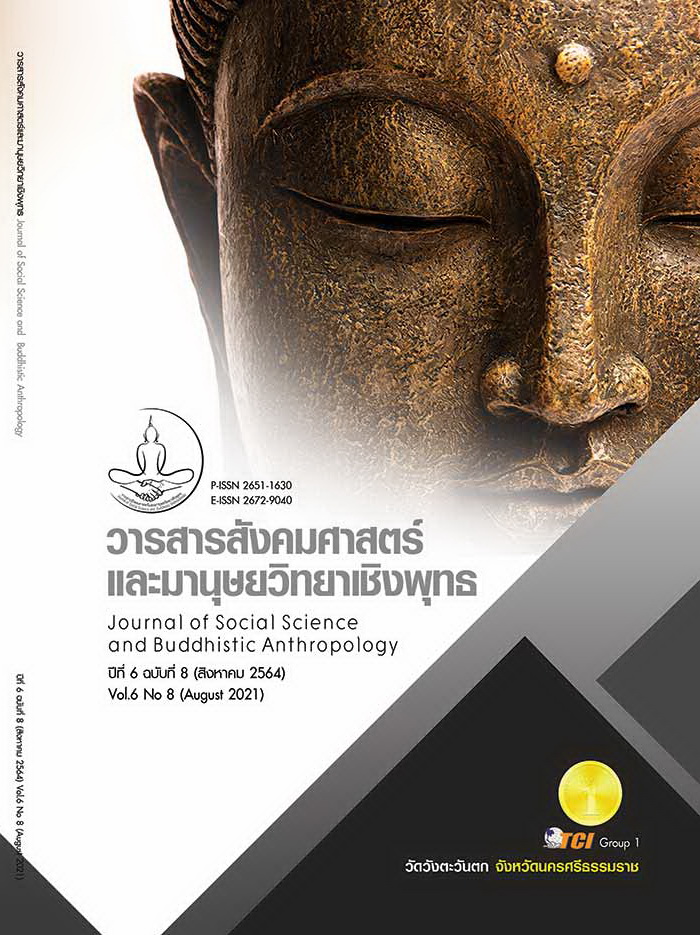Thai Bureaucratic Development in 2006 - 2017: The Case of the Department of Community Development, Ministry of the Interior
Keywords:
Development, Bureaucracy, Bureaucratic Development, Community Development Department, Ministry of InteriorAbstract
The objectives of this research article were to 1) study Thai bureaucratic development between 2006 and 2017 of the Community Development Department (CDD), the Ministry of Interior; to examine 2) study the important performance of the Thai bureaucratic development under study; and to propose 3) study guidelines for the Thai bureaucratic development of the CDD, the Ministry of Interior. The technique of qualitative research was employed. The sample population consisted of ten key informants from the CDD, the Ministry of Interior using the technique of purposive sampling. The research instrument was a structured in-depth interview form. Data were collected from documentary study and in-depth interviews with key informants who were executives of the CDD, the Ministry of Interior. Data were collected from 14 February to 8 June 2020. Findings were descriptively presented with the contents being descriptively analyzed. Research findings showed that bureaucratic development of the Department of Community Development ,the Ministry of Interior has continued to operate, in overall, there are 5 aspects as follows 1) management structure there have been several organizational restructurings, since the establishment of this agency in 1962, especially after 2002, in order to achieve the goal of and clear directions to improve the quality of life of rural people 2) Administration New management tools have been applied; 3) The working system New principles in public management have been applied that lead to a mission-driven work system; 4) Organizational culture Creative values called “ABCDEF S&P” are introduced to create a new corporate culture; 5) Service Information technology is used to facilitate the service. As a result, the Department of Community Development has received several national awards. Self-sufficiency philosophy is recommended for continuous development.
References
ทิพาวดี เมฆสวรรค์. ( 2541). การปฏิรูประบบราชการยุทธศาสตร์สำคัญของการเปลี่ยนแปลง. กรุงเทพมหานคร : สำนักงานคณะกรรมการข้าราชการพลเรือน.
ปัณรส มาลากุล ณ อยุธยา.(2548). “กระบวนทัศน์ในการบริหารจัดการภาครัฐแนวใหม่” ในดุลยภาพแห่งรัฐ กระบวนทัศน์แห่งการศึกษารัฐประศาสนศาสตร์ กรุงเทพมหานคร : จุฬาลงกรณ์มหาวิทยาลัย.
วรัชยา ศิริวัฒน์. (2560). การพัฒนาระบบราชการ. (พิมพ์ครั้งที่2). กรุงเทพมหานคร : มหาวิทยาลัยรามคำแหง.
วัชรินทร์ อินทรพรหม. (2555). ผลสัมฤทธิ์ของการปฏิรูประบบราชการไทย: ครบรอบ 10 ปี (พ.ศ.2545 – 2555) วารสารวิชาการ มหาวิทยาลัยกรุงเทพธนบุรี. 1(2), หน้า45-61.
วิษณุ เครืองาม. (2545). การปฏิรูประบบราชการในราชกิจจานุเบกษา. กรุงเทพมหานคร: สวัสดิการสำนักเลขาธิการคณะรัฐมนตรี.
สำนักงานเลขาธิการวุฒิสภา. (2560). รัฐธรรมนูญแห่งราชอาณาจักรไทย พุทธศักราช 2560. กรุงเทพมหานคร : สำนักงานเลขาธิการวุฒิสภา.
อุไรวรรณ เตียนศรี. (2562). การปรับโครงสร้างหน่วยงานภาครัฐตามนโยบายรัฐบาลในการขับเคลื่อนยุทธศาสตร์ประเทศไทย 4.0. วารสาร มจร สังคมศาสตร์ปริทรรศน์, 8 (1), 127-140.
Farazmand A. (1999). Globalization and Public Administration. Public Administration Review. 12(6), 509 - 522
Haque C. (2004). Governance and Bureaucracy in Singapore: Contemporary Reforms and Implications. [Electronic version]. International Political Science Review, 25(2), 227-240.
Hughes, O.E. (1994). Public Management and Public Administration : An introduction.New York : St. Martin’s Press.
Zahran A. (2016). Public Administration Reform in the UK: A Case Study of Higher









